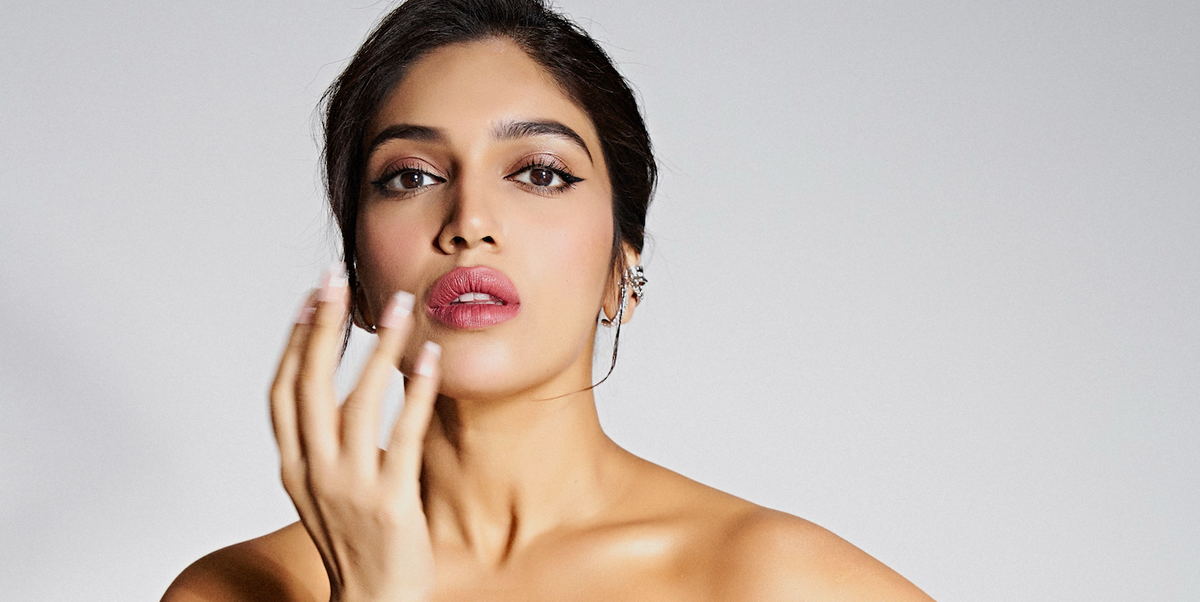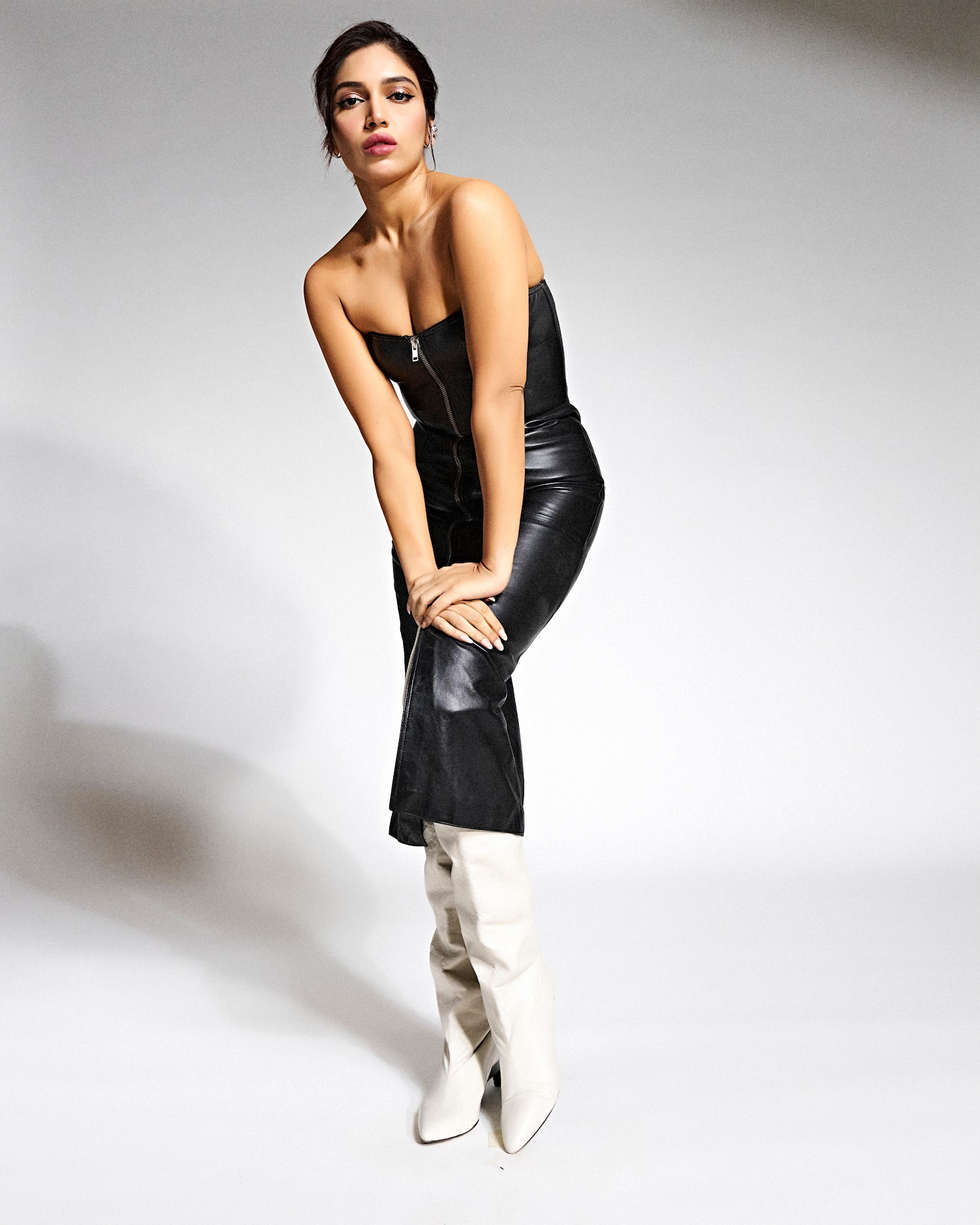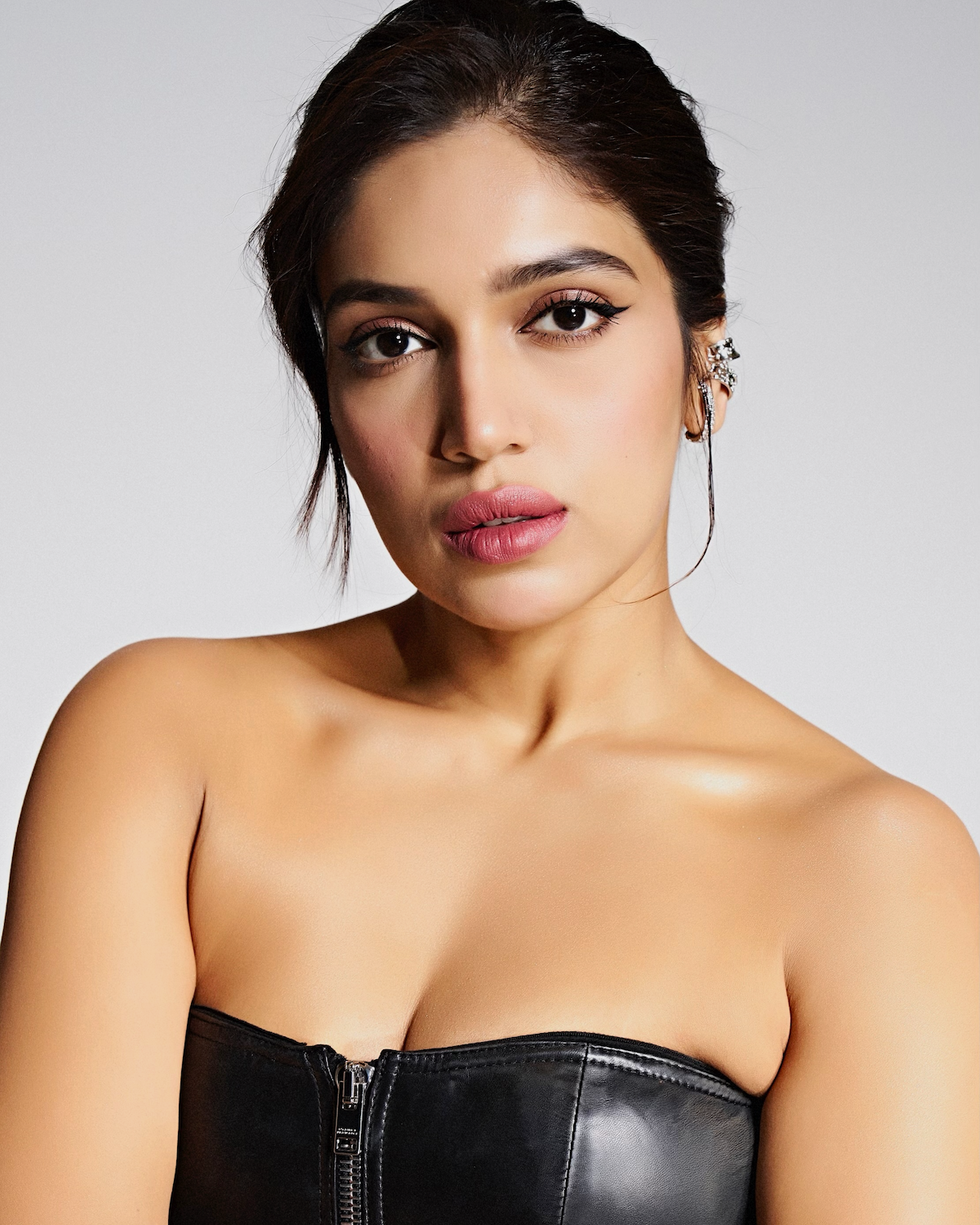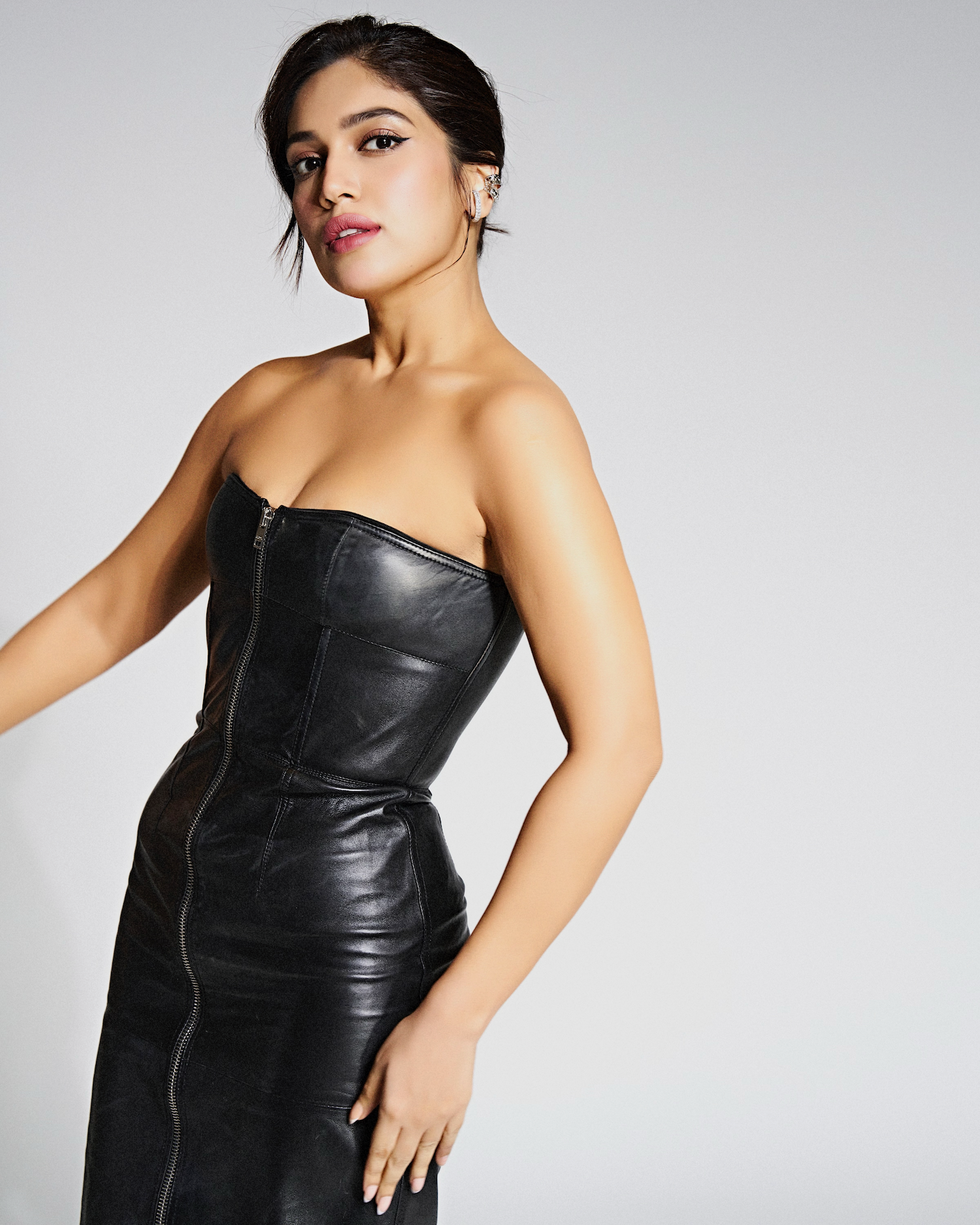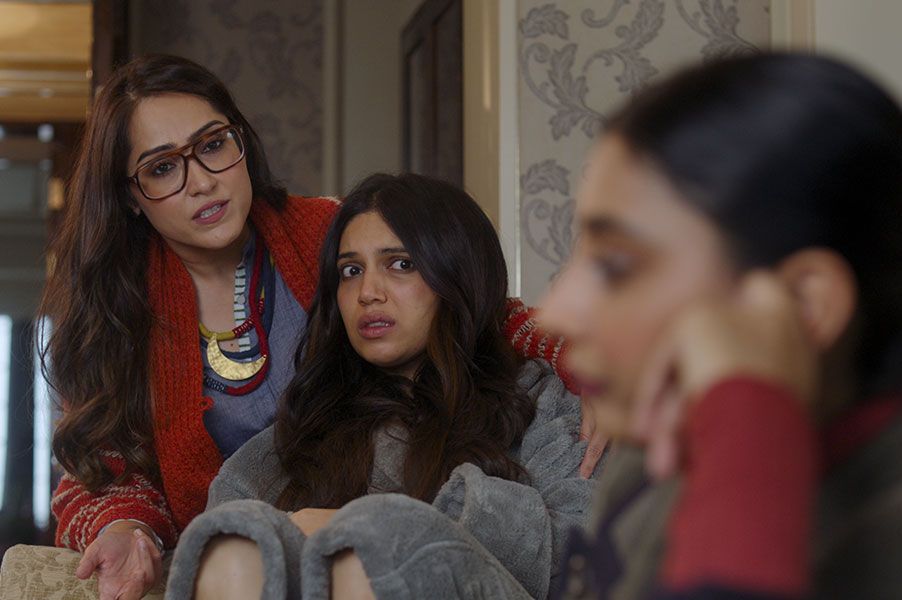Products You May Like
Bhumi Pednekar knew something was different this time. When the Indian producer Rhea Kapoor first pegged the actress as the potential lead for a new, provocative Hindi-language film, the pandemic was at its peak, an in-person meeting out of the question. But Kapoor insisted they couldn’t discuss the project over the phone; she needed to see Pednekar’s face when the elevator pitch reached her ears. Bemused, Pednekar joined the producer on Zoom, where Kapoor laid out the logline, along with a juicy non-sequitur: “Okay, don’t freak out.”
The film she presented that day was Thank You For Coming, about the trials and triumphs of Kanika Kapoor, a 32-year-old Indian woman who’s never once experienced an orgasm—though certainly not for lack of trying. But the sex comedy would cover more ground than its billing might suggest: the complexities of female friendship and betrayal; the long shadow of adolescent slut-shaming; the pressure to pop out babies (and still love sex!); the lure and the pitfalls of marriage in an era where so little seems certain, least of all our own commitments. Pednekar agreed to listen to a narration of the script, and was tearing up by the time it had finished.
“Look, in my part of the world, a lot of comedies for women aren’t written,” she tells me over the phone as her car zips through Mumbai, a few days ahead of Thank You For Coming’s premiere at the Toronto International Film Festival in September. Already a well-established, award-winning actress in India, Pednekar’s frequently jumped between genres, from drama to action to comedy, “but it’s never been front-footed comedy, and it’s never been a comedy that’s written by women, a film that’s being produced by a woman.”
That, and the subject matter was simply too rich to resist. “Female desire, female sexuality makes people very, very uncomfortable,” she says with relish. “But I love making people uncomfortable. I love making myself uncomfortable.”
After her film debut in 2015 with Dum Laga Ke Haisha (released internationally as, yes, My Big Fat Bride), Pednekar achieved notoriety in films that cast her as rural women, including in action flicks like Sonchiriya, as well as 2019’s biographical drama Saand Ki Aankh, in which she played the real-life elderly sharpshooter Chandro Tomar. (“Suddenly these films were working, and I was bombarded with them–which is when I figured I needed to switch,” she told Grazia India in September.) She wanted to prove she could do something based in her own world: Thank You For Coming offered a departure from her earlier small-town stories, as Kanika would be a Delhi food blogger with a background not entirely unlike Pednekar’s own.
In Thank You For Coming—now playing in select theaters—many of Kanika’s hold-ups about sex and marriage stem from the bullying she was subjected to as a teenager. Her gynecologist mother (played in the film by Natasha Rastogi) gave birth to Kanika out of wedlock; she refused to marry Kanika’s father and chose, instead, to raise her as an independent businesswoman and a single parent. Even in Delhi, this choice gave way to the neighbors’ ire.
Despite her tendency to try on boyfriends like costumes, Kanika can never settle into a relationship that seems to satisfy both parties, literally or figuratively. (Case in point: She loses her virginity in a Lightning McQueen bed.) Instead, she’s unceremoniously dumped on more than one occasion, and stuck drunkenly bickering with her mother and her grandmother, indulging in intergenerational butting-of-heads as the former urges her independence and the latter her stability. Mercifully, it’s Kanika’s girlfriends who are the first to hear when—after one fateful, booze and neon-soaked engagement party—Kanika finally achieves climax. The only issue is, when she wakes the next morning, she isn’t sure whom to thank. Her bumbling betrothed, Jeevan (Pradhuman Singh Mall)? Her ex-boyfriend? Or—shit—that one sweets vendor she was eyeing after a few drinks?
The “what happened last night” caper is about as unique a trope as the “awkward-guy-gets-hot-girl” (often, they’re one and the same), but Pednekar’s comedic intuition and uninhibited physicality make Thank You For Coming not only funny, but freeing. There’s remarkably little material in the film designed specifically to scandalize; the message is not one of goading but of guiding. After all, how many of our own wild-night anecdotes have ultimately transformed into poignant wisdom, passed between friends and lovers, mothers and daughters, the once-profane now practically sacred?
It’s a tradition Pednekar knows well, having been raised by her single mother after her father died of cancer 12 years ago. “If she didn’t have the female friendships that she has in her life, I think my life would have definitely shaped up a lot different,” she says. “They all were there supporting her, nurturing her through a time that was so, so tough. And because I’ve seen that growing up, for me, my girlfriends are so important. They’ve set the bar so high of all the emotional tick marks that a man needs to [check].”
One of those emotional tick marks—for Pednekar herself, as well as for Kanika as a character—is the ability for a man to listen (and accept) when a woman speaks openly about her desire. “Especially in my country, consent, loving yourself, the importance of sex, enjoying sex—it’s not something that is spoken of,” Pednekar says. “If you speak about the want to have sex, or if you discuss your sexual life openly—I mean, they look at you like, Oh my God, you’re a creature from a different part of the world. Because it scares people. Your freedom scares people. And that’s exactly what this film is about.”
Pednekar finds the cultural cognitive dissonance appalling: Not only is there stigma against women as sexual beings, but there’s an equally pervasive pressure for those women to find spouses—before time runs out!—with whom to have lots of sex. “Sadly, there’s so much pressure to just find that perfect man,” Pednekar says. “You do some of the silliest things. You hurt yourself. You hurt people around yourself; you lower your standards. Why the fuck should I lower my standards?” She continues, adding that, “in my culture in India,” settling down with a family is “like this holy gospel that you have to pray to. And then everything else is secondary, which means your life, your desires, your wants, your ambitions, what you want to do.”
Even with a project as relatively tame as Thank You For Coming—at least when compared to contemporary rated-R comedies in Hollywood—Pednekar was prepared to deal with naysayers in her home country and abroad. She knew plenty of critics would ignore the film’s elaborate choreographed dance sequences, its pointed jokes about gender politics (“Femi-sanam, femi-sanam, whatever it is, that is what has brainwashed women!”), and its plainly rendered sincerity in favor of its supposed shock value. But when the trailer first dropped in September, Pednekar was surprised by the flood of positive comments from fans, “especially amongst the women, and amongst all my friends from the LGBTQIA-plus communities, and many, many boys,” she says. Then, adding an important caveat: “The ones that are evolved.”
But the ultimate impact of Thank You For Coming—especially as it approached its ritzy TIFF premiere—didn’t land with Pednekar until a member of her own staff approached her with some feedback upon the trailer’s debut. This woman, Pednekar says, is “from a small village; having a phone is a luxury over there. If a boy and a girl are holding hands, it’s a big deal. And she’s like, ‘Yeah, all my sisters and my mother saw it, and they really like your trailer.’” Pedenekar wasn’t sure she believed her. “I was like, ‘Are you sure? They didn’t feel uncomfortable?’”
The woman responded with a Hindi phrase that Pednekar translates, roughly, for me in English: “This is the reality of it, right?” In other words: Who cares if Thank You For Coming is uncomfortable? It’s also honest.
“I was like, shit, we actually underestimate our audiences,” Pednekar says. “Woman to woman, you know what I mean. We might not be from the same social background. We might not be from the same class. We might not have the same education. We’re not from the same geographical location. But you know what I mean.”
Photography by Vaishnav Praveen/The House of Pixels, hair by Sanky Evrus, makeup by Sonik Sarwate, and styling by Manisha Melwani and Devanshi Tuli.
Culture Writer
Lauren Puckett-Pope is a staff culture writer at ELLE, where she primarily covers film, television and books. She was previously an associate editor at ELLE.
